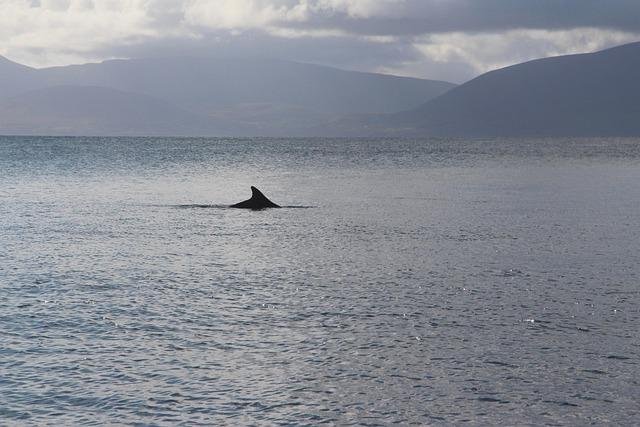set along the wild and scenic coast of County Kerry, Dingle, Ireland, invites travellers not only with it’s rugged landscapes and deep-rooted traditions but also with a captivating legacy of education. If your travel dreams are inspired by learning, culture, and history, dingle offers an enriching palette of educational experiences. In this guide, we uncover the top educational travel tips and delve into fascinating historic school sites—blending revelation, culture, and the joy of lifelong learning.
Why Choose Dingle for Educational Travel?
travelling with curiosity at heart turns every journey into an possibility for growth. Dingle, celebrated for its thriving Irish-speaking community, folk music, and creative arts, offers a unique perspective on Ireland’s history of education. From ancient monastic sites and bilingual schools too tales of scholars and reformers, Dingle’s educational landmarks promise to inspire and inform.
The Rich Educational Heritage of Dingle
Dingle’s story as a place of learning starts centuries ago, echoing with the footsteps of monks, poets, and teachers who shaped the region’s cultural ethos. The preservation of the Irish language and old-school traditions here stands as a testament to an enduring educational spirit.
- Bilingual Education: Dingle is located in the Gaeltacht, a region where Irish (Gaeilge) is the primary spoken language. Here, schools play a pivotal role in preserving and celebrating this linguistic heritage.
- Monastic Roots: Early Christian settlements across the Dingle Peninsula were renowned hubs of learning, art, and community.
- Famed Educators: Dingle has long been home to poets, teachers, and reformers, whose legacies echo in the classroom and culture alike.
Fascinating Historic School Sites to Visit in Dingle
Step back in time by visiting these remarkable school sites and educational landmarks in and around Dingle:
1. The Dingle Schoolhouse (An Scoil Mhór Dhingle)
Once the heartbeat of education for local children, the old Dingle Schoolhouse tells many stories. Built in the 19th century during a turning point in Ireland’s education system, the building is now home to cultural exhibits and community events. Visitors can explore authentic classrooms, old teaching tools, and poignant displays on rural Irish schooling.
- Learn about the National Schools movement and its impact on rural communities.
- Discover the role of teachers as both educators and cultural guardians.
2. Coláiste Íde (the Ring-Inscribed Convent Secondary School)
Coláiste Íde,an Irish-language boarding school for girls,is set within a breathtaking estate just outside Dingle town. Its heritage as a center of Irish-language education is unmatched, and its long-standing traditions uphold the region’s passion for bilingual learning.
- Tour the historic estate and its serene grounds.
- Engage with students (with permission) to hear firsthand accounts of contemporary Irish-language education.
3. kilmalkedar Monastic school Site
A short drive from Dingle leads you to the ruins of the Kilmalkedar Church, believed to date back to the 12th century. This site was once a renowned early Christian school, attracting scholars from afar.
- Marvel at the Ogham stone, ancient crosses, and the unique sundial that hint at Dingle’s medieval scholarship.
- Learn the legends of St. Brendan the Navigator, a patron of learning and exploration.
4. Scoil Cheann Trá (Ventry National School)
Serving the irish-speaking community, this thriving primary school keeps bilingual traditions alive today. While access may be limited, many events and open days offer a chance to experience Irish-medium education first-hand.
5. The Great Blasket Island Literary and School Heritage
A ferry to the evocative Blasket Islands uncovers tales of a tiny community famed for its writers and resilient schoolteachers. The island’s solitary schoolhouse (now partially restored) inspired a generation of storytellers whose works remain cornerstones of Irish literature.
- Tour the preserved schoolhouse and read excerpts from Blasket writers.
- Learn about the unique challenges and joys of island education in the early 20th century.
Educational Travel Tips: Making the Most of Your Trip
Travelling with learning in mind can deeply enrich your journey to Dingle. Here’s how to maximize your educational itinerary:
- Plan Around Local Events: Dingle’s calendar is filled with festivals celebrating language, music, and heritage—each offering workshops and talks for all ages.
- Visit Museums and archives: Besides school sites,the Dingle Museum features exhibits on education,culture,and the region’s famous scholars.
- Engage With Locals: Community guides, teachers, and students add authentic perspectives. A chat in the local café or visit to a community centre can reveal local legends and educational traditions.
- Support Local Bookshops: Discover books written by local authors and historians for unique insights into Dingle’s educational history.
- Brush Up on a Few Irish Words: Even basic greetings in Irish will enhance your experience and help you connect with locals more meaningfully.
Practical Itinerary Example: Two-Day Educational Tour of Dingle
Day 1:
- morning: Visit the Dingle Schoolhouse and Dingle Museum.
- Afternoon: Tour Coláiste Íde; stroll its historic estate and learn about Irish-language education.
- Evening: Attend a local storytelling event celebrating Dingle’s literary figures.
Day 2:
- Morning: Excursion to Kilmalkedar Monastic School Site; explore ancient learning traditions.
- Afternoon: Take a ferry to Great blasket Island; tour the schoolhouse and literary heritage centre.
- Evening: Enjoy traditional Irish music reflecting the area’s poetic history.
Benefits of Educational Travel in Dingle
Educational travel is about more than sightseeing—it’s about meaningful connection and personal growth. Here’s what sets Dingle apart for education-focused explorers:
- Cultural Immersion: Experience authentic Irish-speaking culture in a living Gaeltacht region.
- Intergenerational Learning: Dingle’s storied classrooms and oral traditions create memorable moments for families and learners of all ages.
- Inspiration for Educators and Students: Teachers, historians, and lifelong learners can draw inspiration from Dingle’s historic pedagogies and contemporary education methods.
- Lovely Backdrops: The landscape itself is an educator—rolling mountains, wild Atlantic seas, and historic ruins invite contemplation and discovery.
Firsthand Experience: A Visitor’s Tale
“As a teacher with a passion for history, touring Dingle’s school sites felt like opening a treasure chest. The Dingle Schoolhouse, with its aged desks and evocative teacher’s journals, made the past tangible. But what truly moved me was chatting with a student at Coláiste Íde, who shared the joys of learning in Irish and upholding her community’s heritage. The experience deepened my recognition for the power of language and tradition in education.”
Practical Advice for Educational Travellers
- Contact Ahead: Some schools and historic sites may require advance notice for tours, especially if visiting with a group.
- Participate in Workshops: Look for short courses in the Irish language, music, or local crafts to further immerse yourself in Dingle’s educational culture.
- Respect Local Customs: Many school sites blend contemporary life with historic preservation—be mindful and respectful during visits.
- Travel Sustainably: Support local businesses, use public transport, and tread lightly in protected heritage areas.
Conclusion: Dingle—Where Every journey is a Lesson
Dingle, Ireland, is more than a picturesque peninsula—it’s a living classroom where stories old and new shape every visitor’s experience. Whether you’re fascinated by historic school sites,eager to participate in vibrant traditions,or keen to pass learning on to the next generation,Dingle promises a journey as enriching as it is indeed unforgettable. Pack your curiosity, and prepare to discover how education connects people, time, and place along this magical stretch of the wild Atlantic way.








0 Comments